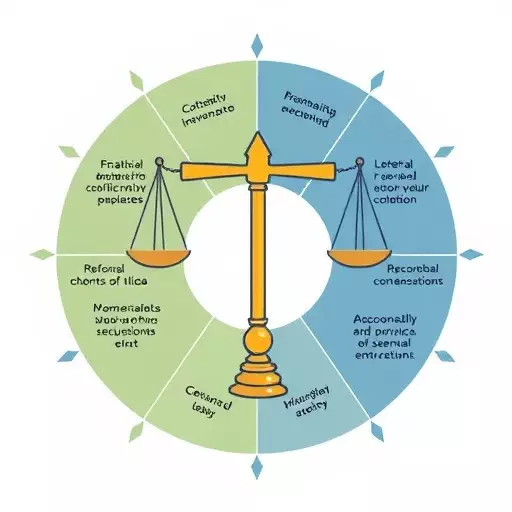Establishing an irrevocable trust ensures fixed asset distribution but requires careful modification due to its binding nature. Consulting an experienced irrevocable trust modification attorney Palo Alto California is crucial for navigating the complex process, maintaining original intent, and complying with regulations. The irrevocable trust modification process involves document analysis, identifying valid reasons for change, strategic adjustments, beneficiary adjustments, and potential court approval, all while minimizing tax implications. Legal strategies for trust modification are tailored to specific goals, addressing tax law updates, unforeseen events, or shifting beneficiary relationships efficiently and legally.
“Navigating the intricate world of irrevocable trusts? This comprehensive guide unravels the complexities of trust modification, particularly focusing on decanting an irrevocable trust. From understanding the foundational concepts and various types to exploring legal frameworks in California, we delve into common scenarios necessitating change. Discover practical strategies and precise steps involved, guided by expert insights from an irrevocable trust modification attorney in Palo Alto, California. Empower yourself with knowledge to efficiently manage your trust.”
- Understanding Irrevocable Trusts: Basics and Types
- When Modification is Necessary: Common Scenarios
- The Legal Framework for Trust Modification in California
- Strategies and Steps Involved in Decanting an Irrevocable Trust
Understanding Irrevocable Trusts: Basics and Types

An irrevocable trust is a legal arrangement where a person (grantor) transfers assets to a trustee to manage on behalf of beneficiaries. Unlike revocable trusts, the grantor cannot modify or revoke an irrevocable trust once it’s established. This permanence ensures that the trust’s terms and asset distribution remain unchanged, providing a level of certainty for all involved parties. There are various types of irrevocable trusts, each serving specific purposes, such as asset protection, estate planning, and tax advantages.
When considering modifications to an existing irrevocable trust, it’s crucial to consult with an experienced attorney in Palo Alto, California. These legal experts can guide clients through the intricate process, ensuring compliance with relevant laws and regulations. The irrevocable trust modification process involves careful analysis of the trust document, identification of valid reasons for change, and implementation of strategies that align with the grantor’s goals while maintaining the integrity of the original intent. Legal strategies may include amending the trust’s provisions, adding or removing beneficiaries, or even setting up a new trust structure to better accommodate evolving circumstances.
When Modification is Necessary: Common Scenarios

When an irrevocable trust requires modification, it’s crucial to understand that such changes cannot be made at the whim of the grantor or beneficiaries. The process is governed by specific legal strategies and must adhere to the initial terms and purpose of the trust. Common scenarios prompting irrevocable trust modification include changes in the grantor’s financial or personal circumstances, updates to tax laws affecting the trust, or the need to accommodate unforeseen events like disability or changes in beneficiary relationships.
In these situations, consulting an experienced irrevocable trust modification attorney in Palo Alto, California, is essential. Legal professionals specializing in trust law can guide clients through the intricate process, ensuring compliance with all applicable laws and regulations. They employ various legal strategies to modify the trust document, protect the interests of all parties involved, and maintain the integrity of the original intent behind the trust establishment.
The Legal Framework for Trust Modification in California

In California, the legal framework governing irrevocable trusts is structured to maintain the integrity and certainty of long-term asset protection. Modifying an irrevocable trust requires careful navigation through state laws and court precedents. An irrevocable trust modification attorney in Palo Alto, California plays a pivotal role in ensuring that any changes adhere to stringent legal standards. They employ strategic approaches to alter trust provisions while preserving its overall validity, protecting the interests of all beneficiaries, and avoiding potential tax implications.
The irrevocable trust modification process involves several key steps: identifying the grounds for modification, preparing updated trust documents, obtaining court approval (if necessary), and ensuring compliance with relevant laws. Legal strategies may include amending terms to address changing circumstances, adding or removing beneficiaries, or modifying investment guidelines. An experienced attorney guides clients through this intricate process, providing insightful counsel tailored to their unique situation to achieve the desired modifications legally and efficiently.
Strategies and Steps Involved in Decanting an Irrevocable Trust

Decanting an irrevocable trust involves a strategic legal process designed to modify its terms and distribution mechanics while maintaining its original intent. The first step is to consult with an experienced irrevocable trust modification attorney in Palo Alto, California, who can guide you through the complexities of the process. They will assess the specific language and structure of your trust document, identifying any clauses that might allow for modification or flexibility.
Next, developing a comprehensive plan tailored to your goals is crucial. This may include changing beneficiaries, adjusting distribution timelines, incorporating new investment strategies, or even severing portions of the trust. The legal strategies for trust modification can be nuanced and require careful consideration to ensure compliance with tax laws and regulatory requirements. Once a strategy is finalized, executing the changes requires precise documentation, court filings (if necessary), and potential third-party involvement.


